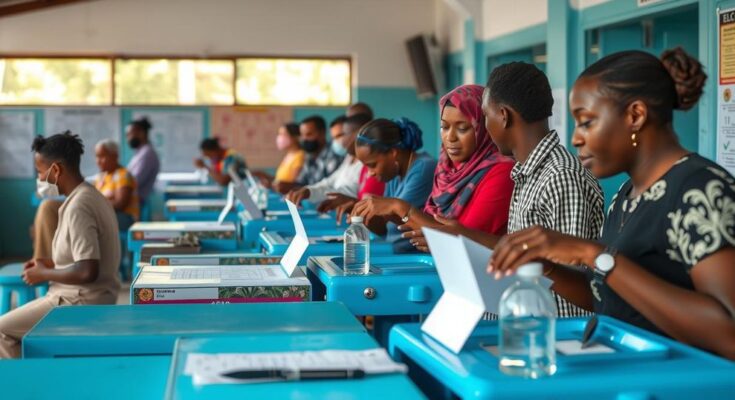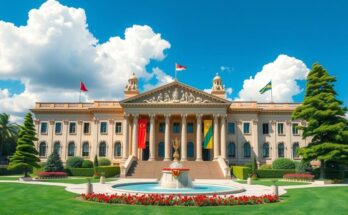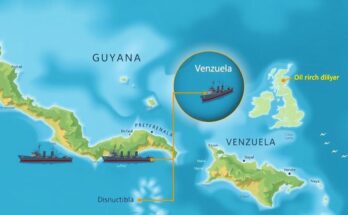Voters in Comoros are at the polls for parliamentary elections amidst allegations of electoral irregularities following President Azali Assoumani’s recent re-election. Approximately 338,000 registered voters are participating. The elections are viewed as essential for the democratic process in the country, with some opposition parties calling for a boycott due to concerns over authoritarianism from the ruling regime. Results are expected by Friday.
Voters in Comoros are currently participating in elections to select representatives for the 33-seat parliament following the recent re-election of President Azali Assoumani. These elections come amidst allegations from opposition parties regarding irregularities in the electoral process. Despite these claims, officials from the ruling party maintain that the elections are legitimate. The polling stations opened early on Sunday, with about 338,000 registered voters making their way to cast their ballots.
The last parliamentary elections occurred in January 2020, and this year, nearly 100 candidates have been approved by the Supreme Court to compete. Assoumani’s administration has faced criticism from his opponents, who describe his leadership as increasingly authoritarian. There are concerns that he may be grooming his son, Nour El-Fath, to succeed him after his term concludes in 2029, particularly after significant powers were conferred to the young political figure in 2024.
Some opposition factions, including Juwa, led by former President Ahmed Abdallah Sambi—currently serving a life sentence—have urged a boycott of the elections. However, others have chosen to participate, arguing that their involvement will help expose the flaws in the current regime. Hamidou Karihila of the opposition Hope of the Comoros party articulated this sentiment, stating that participation would highlight the weaknesses of the Azali administration. The election results are anticipated to be released by Friday.
The political landscape in Comoros is characterized by a protracted struggle between the ruling party and opposition groups, especially since President Azali Assoumani’s coup in 1999. The country has faced a series of governance challenges, and concerns over electoral fairness have surfaced, particularly following elections perceived as lacking legitimacy. The current elections are a critical moment for Comoran democracy, with voter turnout and candidate participation signaling public sentiment towards the ruling regime’s stability. President Assoumani has solidified his power through multiple elections since his coup, but with growing opposition claims of authoritarianism, the atmosphere surrounding these elections is tense. The involvement of political figures like Nour El-Fath suggests a potential dynastic succession plan, which raises further questions among the electorate about the future of democratic governance in the archipelago.
The elections in Comoros represent a crucial moment for the country’s democratic processes amidst allegations of electoral malpractice and growing public discontent with President Assoumani’s administration. With heightened political tensions and opposition calls for boycotts, the outcome of these elections may significantly impact the future governance of Comoros. Observers await the election results, which will be disclosed by Friday, to gauge the direction of the Comoran political landscape.
Original Source: www.lismorecitynews.com.au




